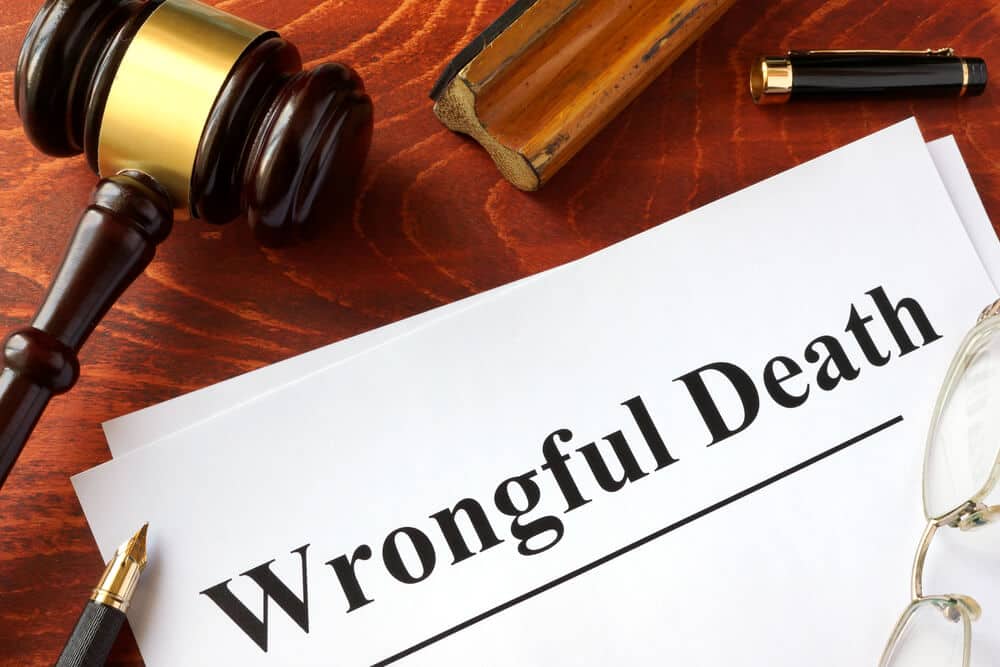A wrongful death lawsuit allows grieving families to obtain just compensation and hold those responsible for their loved one’s untimely death accountable. But the window of opportunity doesn’t stay open for long. Time limits, in the form of statutes of limitations, govern how long you can wait to file a wrongful death claim.
If you fail to heed these deadlines, you may lose the right to seek justice and pursue compensation. Understanding the purpose and importance of statutes of limitations allows you to take timely action in a successful wrongful death claim. contact a wrongful death lawyer as soon as possible for legal guidance.
What Is a Statute of Limitations?
A statute of limitation is a legal deadline by which you must file a lawsuit. Think of it like a timer that begins when the event for which you are looking to file a claim occurs. The timer runs out after the limit for the specific offense or event has occurred.
That period changes depending on where you’re filing the claim and the type of claim you file. It means you must contact a lawyer as soon as possible to file your lawsuit before the relevant statute of limitations.
What Happens if You Don’t File a Lawsuit Within the Time Limit?

If you don’t file a wrongful death lawsuit within the statute of limitations in your jurisdiction, you may not pursue your claim. The defendant will no longer face any potential liability for the wrongful death, nor can the victim’s family require them to pay compensation.
Losing your right to pursue justice is what makes understanding and adhering to the relevant statute of limitations so important.
You’re not on your own, fortunately. An experienced personal injury attorney can navigate the complexities of the law in your jurisdiction. That includes an analysis of the unique circumstances of the wrongful death case to determine the appropriate deadline for filing the lawsuit and ensure that you file the claim on time. By doing so, the attorney helps protect your rights and increases the likelihood of securing justice and compensation.
Time Limits for Wrongful Death Claims Across the United States
While the concept of a statute of limitations for wrongful death lawsuits is consistent across all U.S. states, the exact time limit varies from one state to another. In some states, the deadline changes based on the cause of the death.
Examples include:
- Nevada: two years for wrongful death claims.
- Louisiana: one year for wrongful death claims.
- Michigan: three years for wrongful death claims.
- Wisconsin: three years for most wrongful death claims but only two years for wrongful deaths due to road accidents.
- Kentucky: one year for most wrongful death claims but two years for wrongful deaths due to road accidents.
These nuances make it crucial to seek legal advice from an experienced personal injury attorney familiar with the jurisdiction where the wrongful death occurred.
The right attorney can help you understand exactly how your wrongful death case falls within the many details of your state’s statute of limitations. They will also review the factors that affect the time limit and potential exceptions that may apply to your case.
Common Factors that Change the Statute of Limitations for Wrongful Deaths
Part of what makes this legal concept so tricky is that the statute of limitations is not always absolute.
Several factors determine whether the time limit applies in your case or whether it could extend or pause:
- The discovery rule may allow the statute of limitations to start from the date you discovered or reasonably should have discovered the cause of your loved one’s death instead of the death itself. That way, the legal process is still fair when wrongdoing was not immediately obvious to you or others around you.
- Tolling or pausing the statute of limitations can extend the time for filing the wrongful death claim. The defendant may be a minor, legally defined as mentally incompetent, or out of state during the time limit, for example. Valid reasons for pausing the clock change vary between jurisdictions, so working with an attorney to ensure tolling provisions apply to your case is critical.
There may also be other exceptions to the statute of limitations in wrongful death cases. The exact legal circumstances always depend on the jurisdiction and unique circumstances of your case. The right attorney can help you identify any exceptions or special provisions that may apply.
Additional Exceptions to the Statute of Limitations
While the discovery rule and tolling are the two most common reasons for an extension, other scenarios may introduce additional laws and regulations that affect your case’s timeline.
Claims Against Government Entities
When filing a wrongful death claim against a government entity, such as a city, county, or state agency, the statute of limitations may significantly shorten. In some jurisdictions, you may have as little as six months to file a wrongful death lawsuit against a government entity. These shorter time limits make it even more crucial to consult an experienced attorney as soon as possible after the wrongful death.
Wrongful death claims against government entities also tend to have specific procedural requirements. Before filing the lawsuit, for example, you may have to provide the government entity with written notice of the claim within a specified period. The court may dismiss your claim if you don’t comply with these procedural requirements. Your attorney can guide you through these unique requirements to file your claim correctly and on time.
Cases Involving Minors
In cases where the victim’s surviving family members are minors, you may be able to toll or pause the statute of limitations until the minor reaches the age of majority. This gives the minor ample time to pursue a wrongful death claim on behalf of their deceased family member once they become an adult. An attorney can explain how the tolling provisions may apply to your case if it involves minors.
The age of majority, the age at which the law considers an individual an adult, can vary between jurisdictions. In most states, this is 18, but it might be 19 or 21. Work with an attorney to determine the applicable age of majority in your jurisdiction and how it may change the statute of limitations in your claim.
Defendant Fraud or Concealment
In cases where the defendant has engaged in fraud or actively concealed the negligence or wrongdoing that led to the victim’s wrongful death, some jurisdictions may allow an exception to the general statute of limitations. Your attorney will explore whether this exception may apply to your case and help you gather the necessary evidence.
Bankruptcy of the Defendant
If the defendant in a wrongful death claim files for bankruptcy, this may temporarily halt the statute of limitations until the bankruptcy proceedings are complete. Your personal injury lawyer can help you navigate the complexities of pursuing your claim during these unique circumstances.
The Importance of Timely Action for Wrongful Death Lawsuits
Missing the statute of limitations deadline in a wrongful death case may have severe consequences. If you fail to file your claim within the designated time frame, you risk losing your right to seek compensation for the loss of your loved one. The court may dismiss your case, leaving you without recourse for the emotional and financial burdens caused by the death.
This is another vital reason for working with an experienced personal injury lawyer. The right lawyer will help you take timely action to preserve your wrongful death claim. That includes determining the applicable statute of limitations in your jurisdiction and guiding you through filing your claim within the deadline.
Your attorney can also evaluate your case and identify any factors, tolling provisions, or exceptions that may extend the statute of limitations. That increases your chances of success in your pursuit of justice and compensation.
3 Steps to Take After a Wrongful Death
Following a wrongful death, three essential and immediate steps protect your rights and preserve your claim:
- Seek legal advice as soon as possible. Consult an experienced personal injury lawyer immediately after the wrongful death to learn your rights and responsibilities, including legal deadlines and any other specific procedural requirements that may apply.
- Preserve all evidence. Properly documenting and preserving evidence related to the wrongful death can strengthen your claim. Your attorney will collect and safeguard crucial evidence, such as medical records, police reports, and witness statements.
- File your claim promptly. In most cases, the statute of limitations is a strict deadline. You must file your wrongful death claim as soon as possible to avoid missing the deadline and losing your right to seek compensation.
Potential Compensation for a Wrongful Death Claim
The amount of compensation a court can award in a wrongful death claim varies and depends on:
- Economic damages: This includes financial losses such as medical expenses, funeral costs, loss of income, and the value of the financial support the deceased would have provided.
- Non-economic damages: Examples include the emotional pain and suffering experienced by the surviving family members, loss of companionship, and loss of consortium (the loss of a spousal relationship).
- Punitive damages: In some cases, the court may award punitive damages to punish the defendant for particularly egregious behavior and deter others from engaging in similar conduct. Not all jurisdictions allow punitive damages, and their availability and limits can vary.
The specific laws regarding wrongful death and compensation vary by jurisdiction, and different states or countries may have other legal systems and rules. Additionally, the circumstances surrounding the wrongful death, the age and earning potential of the deceased, and the strength of the evidence and arguments presented can also influence the compensation amount.
Contact a Lawyer to Understand the Statute of Limitations in Your Wrongful Death Case
In wrongful death cases, understanding and adhering to the statute of limitations is essential for preserving your right to seek compensation. This complicated rule varies between jurisdictions and cases, but you must remember it when filing a claim.
Failing to adhere to the statute of limitations may result in losing your right to pursue justice for the loss of your loved one. Even if you think the statute of limitations expired, consult a lawyer, as exceptions may apply.
Don’t let the statute of limitations hinder your pursuit of justice. Contact a knowledgeable personal injury attorney in Las Vegas who can outline your rights and ensure you file your case on time.
